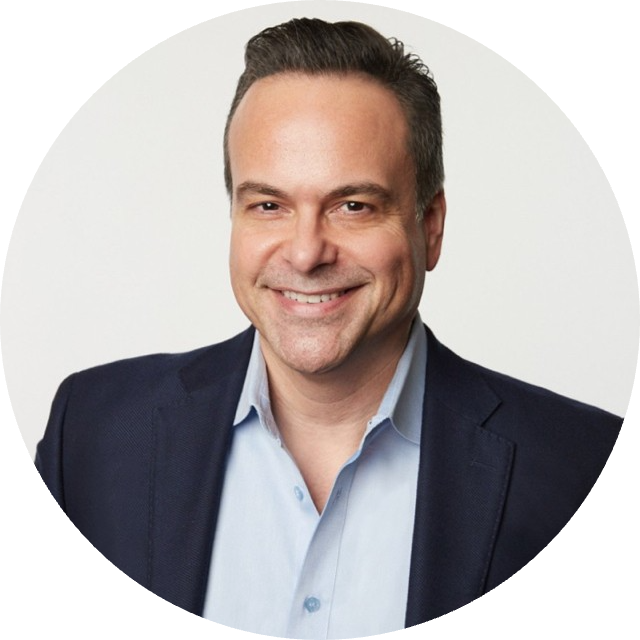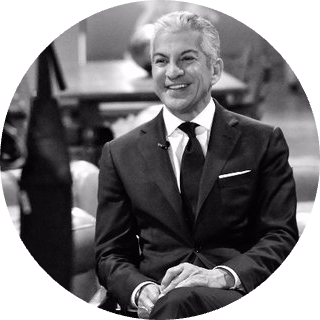‘Corporate America ignores my community’: Unlocking the $800 billion Hispanic business sector

Twenty-five nationalities are represented within the 200-person staff at creative, media and communications agency Republica Havas.
That includes folks from Mexico, Argentina, Colombia, Puerto Rico, and Spain, to name a few. It’s what co-founder, chairman, and CEO Jorge Plasencia says makes the agency stand out.
“If we were monolithic to one group, then you’re not bringing the perspectives from all these different nationalities, but also all these perspectives,” said Plasencia, whose agency is based in Miami. “There are 20 countries that speak the language and there are a lot of things that string us together as Latinos, but at the same time, there are a lot of nuances based on the country you’re from. It makes our work richer and deeper.”
Diversity equity and inclusion is important every month of the year, but Sept. 15 through to Oct. 15, specifically celebrates national hispanic heritage. Over 51% of the population growth in the U.S. is Hispanic, according to the Pew Research Center. And there are more than 60 million Hispanic Americans contributing to culture and society. Business is a part of that. In the next decade, according to the Department of Labor, over 78% of new entrants into the American workforce will be Hispanic.
“I grew up really proud of having been born in the United States and being an American, yet very connected to my Latin roots and culture,” said Plasencia, whose parents fled from Cuba after the revolution in the ‘50s and moved to Miami to start over. “I call myself a 200 percenter because I live both my cultures.”
He built the agency in the early 2000s with his co-founder Luis Casamayor by taking on projects that bigger agencies wouldn’t. Today, they’ve grown to work with household names including Toyota, Walmart and AARP.
And this year, they launched a special campaign, #SpeakHispanic, to continue raising the voices of Hispanic communities. It’s built around Latino-centric context that aims to spark inclusive conversation and debunk stereotypes that go beyond heritage.
“It’s about continuing to do our part in having CEOs, CMOs, board of directors, understand that we have clients today that tell us their double digit growth over the next five to ten years will come from the Hispanic community,” said Plasencia. “The Latino community in the United States is many times still untapped for companies. If you don’t have a multicultural plan that includes a focus on the Hispanic market, you’re missing out on a big opportunity to connect with a consumer base that is extremely brand loyal.”
Selig Center for Economic Growth data indicates that Hispanics, 20% of the U.S. population, are surpassing a purchasing power of $2.5 trillion, an amount greater than the GDPs of Russia, Canada or Italy.
That’s where the United States Hispanic Business Council comes in. USHBC is a non-profit organization that is the leading voice for the Hispanic business community. This council has found a variety of topics impacting the community, including the need for diversity and representation in business and media. Hispanics hold less than 4% of board seats.
“For 30 days, corporate America will celebrate my community, but for the remainder of the year, corporate America ignores my community,” said Javier Palomarez, president and CEO.
He’s trying to extend that synergy year-round, especially with the lens that DE&I is ultimately a smart business move, especially knowing how loyal this community is to certain brands and the value of this growing population as future consumers.
“When you look at some pockets of this nation right now, especially in the political arena, diversity is coming under attack,” said Palomarez. “It’s an early warning sign that we need to look at diversity from a different lens. Diversity for the sake of diversity is not the right approach. But it makes business sense.”
Diversity of thought is increasingly important and a reason why Palomarez encourages corporations to be proactive when it comes to hiring people from all different backgrounds. It’s giving yourself an honest assessment by asking questions like what markets are you serving today, what markets do you want to expand to, where are you underperforming, what does the consumer of the future look like, and so on.
“The answer to those basic questions should guide the diversity of the business,” said Palomarez. “Diversity should begin at the bottom with interns all the way up to the board of directors to include a healthy representation of Latinos at every level.”
USHBC advocates for 4.5 million companies that contribute a total of $800 billion to the economy. But besides this, they help companies get to where they need to be when it comes to diversity. For example, Palomarez had just gotten off a call with a well-known bank that didn’t have one Hispanic person on its board of directors. It was broken up into seven white people and three Black people.
“I made my thoughts known,” said Palomarez. “We set out to help and present the truth through collaboration, but there is a lot of work to do.”
Claudia M. Mirza agrees that the lack of representation in boardrooms is enough. She’s the co-founder and CEO of the Akorbi Group who led the company’s evolution from a small Spanish language translation platform to one of the world’s largest, woman-owned and U.S.-based language service providers with annual revenues of $55 million. She immigrated to the U.S. from Colombia in 1997, breaking away from her family’s path of working in agriculture and joining corporate instead. The El Paso, Texas-based company has around 700 employees.
“It makes a lot of sense to bring the perspectives of Latinos and understand diversity of thought in the boardroom,” said Mirza.
But she’s also happy to be based in America: “It’s a remarkable place for you to accomplish any dream you have.” And she, like many other Latinos, brings her entrepreneurial spirit with her.
“Latinos, especially Colombians, due to the lack of formal employment opportunities, are really great entrepreneurs because some people have to sell arepas, other people are selling clothes,” said Mirza. “We have all of this informal business in order to make a living. I didn’t know that type of survival could make us great entrepreneurs some day.”


